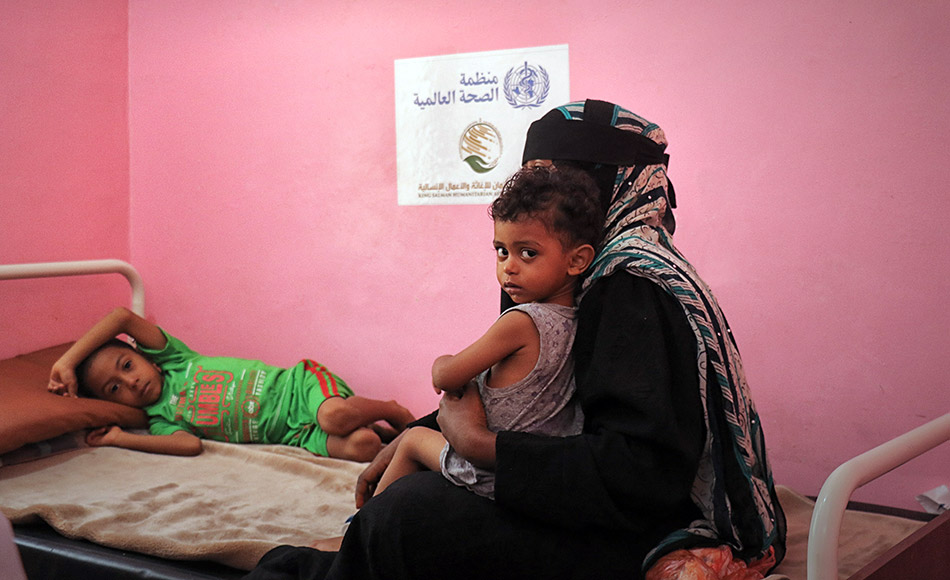
13 April 2022 (WHO) – With support from the King Salman Humanitarian Aid and Relief Centre (KSrelief), the World Health Organization (WHO) has begun providing essential medicines, equipment, and training to eight high-priority hospitals in Yemen for treating severe acute malnutrition among children under the age of five.
WHO will support the pediatric units of these hospitals with essential medicines and equipment, training of health workers, and 192 PED/SAM kits for treating childhood illnesses including severe acute malnutrition with medical complications.
“This is a life-saving intervention for thousands of children, to strengthen nutrition into child health,” said Dr Adham Rashad Ismail Abdel-Moneim, WHO Representative to Yemen. “In addition to providing vital support to hospitals treating suffering children, the programme has also strengthened knowledge within communities about nutritional and health needs of infants and young children. This will help reduce morbidity and mortality related to malnutrition.”
Under the programme, nutrition and health care knowledge for children, adolescents and mothers will be spread through social media, TV, radio, and other communication channels to more than 3 million people in Yemeni districts faced with overall acute malnutrition rates of more than 15% -- the WHO emergency threshold. The programme will directly benefit some 18,000 children to be treated at these eight hospitals during the next nine months. Health worker knowledge and technical competencies will also be boosted for treating and mitigating recurrence of severe acute malnutrition cases among Yemeni infants and children. Household child caregivers will also be instructed in Infection prevention control (IPC) and COVID-19 control measures.
Yemen’s eight-year civil conflict and resulting economic and infrastructure collapse have heightened the country’s risk of famine, with two-thirds of Yemen’s districts now classified as “pre-famine” by the United Nations Office for the Coordination of Humanitarian Affairs (UNOCHA).
Last year, WHO supported 109 TFCs with vital medical and laboratory supplies as well as water, sanitation and hygiene (WASH) services. These TFCs provided life-saving nutrition services to about 21,000 infants and children. Some 94% of infants and children treated at the TFCs survived, and only 2% are known to have relapsed.
“WHO-Yemen has and will continue to focus on doing whatever we can to reduce the tremendous suffering that accompanies catastrophic levels of malnutrition in Yemen,” Dr Abdel-Moneim concluded.








